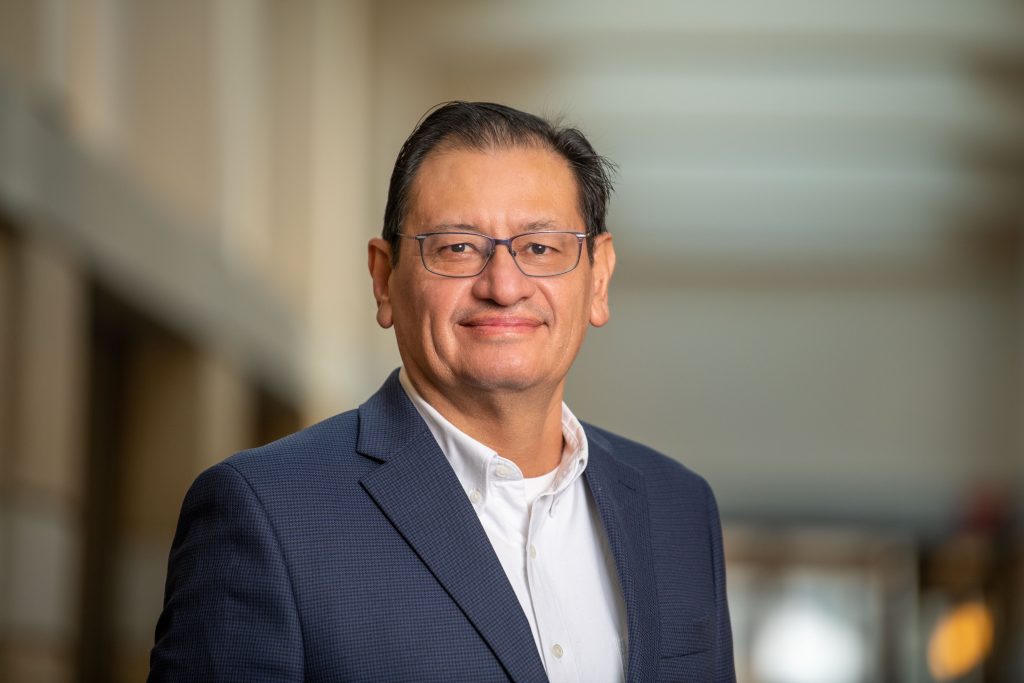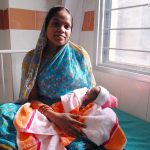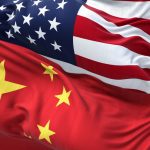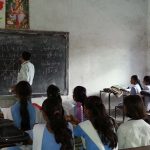Andrés Mejía Acosta joined the Keough School as the Kuster Family Associate Dean for Policy and Practice in January 2023. A political scientist by training, his work examines the politics behind policymaking in emerging markets. Mejía Acosta has published widely on the workings of democratic institutions, the political management of public finances, and food and nutrition policies. While Latin America is his primary geographic area of expertise, he also has led research teams in Africa, Asia, and Eastern Europe.
Coming to Notre Dame has been a homecoming for Mejía Acosta, who earned his PhD from the Department of Political Science in 2004. As a doctoral student, he was a PhD fellow at the Keough School’s Kellogg Institute for International Studies. Before returning to Notre Dame, Mejía Acosta was a reader (professor) of political economy and founding member of the Department of International Development at King’s College London. He also is a former senior research fellow at the Institute of Development Studies at the University of Sussex, where he led global research programs on state-building and state capacity, democracy and local government, and nutrition governance in low- and middle-income countries.
In the interview below, Mejía Acosta discusses his research, the connections between research and policy, and his vision for enhancing the Keough School’s contribution to global policymaking.
What motivates your research and how does your research intersect with policy?
I wrote my PhD dissertation on the presidential strategies for bargaining economic reforms in Ecuador. Between the start and end of my doctoral work, the failure of these political negotiations eventually led to the ousting of three presidents. I then realized how my research also helped to explain political instability, which directly affected policymaking.
My position at the Institute for Development Studies in Sussex enabled me to connect my research to teaching and policy. The scholarly knowledge I had acquired at Notre Dame on how legislative bargaining, political elites, and local governments work was directly relevant for designing, planning, and implementing development interventions in other countries. I started collaborating with development agencies and organizations like the British Department for International Development, the Swiss Development Corporation, UNICEF, and the Natural Resource Governance Institute. From a development perspective, it was expected that national governments would want to advance development outcomes like improving local governance or increasing public health coverage. In turn, my political science background was useful to understand why and how political elites would (not) want to collaborate with one another or advance alternative goals instead. I felt I had something useful to bring to that conversation.
How did you begin your work in nutrition policy?
I started with a project that sought to document success in reducing stunting, a form of chronic undernutrition affecting children in Peru. The Peruvian government had been able to reduce undernutrition by over five percent in five years, making this Andean country a trailblazer in the region and worldwide. CARE-Peru invited me to come and document this experience. My paper, which was published as an academic article but also in policy briefs, documented how effective political coordination, transparent budgeting, and civil society participation led to effective nutrition interventions.
This novel approach to understand the politics underlying nutrition policies was relevant for the British Department for International Development, and they commissioned six more studies in Brazil, Ethiopia, India, Pakistan, Bangladesh, and Zambia. Within a few years, I had led or conducted over a dozen nutrition governance studies in countries and territories worldwide. Several years later, in 2021, the Ecuadorian government invited me to advise the crafting of a national strategy to reduce children’s chronic undernutrition, which fittingly validated the policy relevance of my earlier research.
What is it like to be back at Notre Dame?
Notre Dame has always been home to a rich and engaged intellectual community. The Kellogg Institute, which supported my doctoral work, now has a beautiful new home in Jenkins Nanovic Halls as part of the Keough School—a testament to the university’s investment in developing a policy school.
When I finished my PhD, doing policy-related work was aspirational. It was welcome here, but there was no place to do it—I needed to go elsewhere. At that time, I engaged with Washington policymakers on my own, made my own travel arrangements and contacts. We now have a splendid Washington Office with strong policy networks and a developing strategy for generating policy impact. It’s rewarding to come full circle and be at a place that cares about the policy dimension of research. On a personal level, coming back here meant having the opportunity to complete the mission of doing policy- relevant research that I began back in my graduate school days.
What are your thoughts on integral human development (IHD), the academic centerpiece of the Keough School?
My professional work has sought to prioritize attention on the human condition, and to put the well-being of the human person at the center of the research, teaching, and policy work I have done. This is part of my own moral compass. I also think IHD is a valuable concept because it is not directly representative of any particular political ideology. Placing the human condition at the center of the work we do is particularly useful when increased political and ideological polarization forces us to choose one side or the other. IHD offers a bridging space, a common platform, to begin a dialogue about how to prioritize human dignity above all things.
What do you see as the most important part of your role at the Keough School?
My hope is to help leverage the excellent scholarly work, the dedicated teaching, the quality of students, and the impressive network of Notre Dame alumni, to produce effective policy impact. By effective I mean setting new agendas that define and shape debates and bring attention to important topics. I think it’s essential that we communicate our excellent scholarly research to different audiences in tangible, practical, thought-provoking ways. We can further encourage our students to connect their own interests with the drive to become effective policymakers themselves.
I also want to make sure we make the most of Notre Dame’s network of committed alumni, the university’s Global Gateways and Centers, and the Washington Office, so that we can bring our policy-influencing work where it matters. Notre Dame has nearly a dozen Global Gateways and Centers worldwide, and more than half of them are in the Global South. That is where we need to bring our research, our students, our commitment of service, but we also have a unique opportunity to be more present and to better understand how to respond to policy challenges and demands.
Ideally, what is the relationship between research and policy?
In my experience, there is a close and direct relationship between research and policy. We need solid research in order to make good policy, and good research needs to be well-informed by the policy realities on the ground. In my professional experience I’ve learned to straddle between the two worlds, and working in UK universities allowed me to be part of a community of straddlers. It would be common to draw on academic research to understand different case studies of local service provision. And talking to local government officials about opportunities and constraints when delivering public health interventions was essential to revise what we teach our students or how we adjust established theoretical frameworks. Straddling research and policy has helped me formulate meaningful research questions and translate research implications to different audiences and stakeholders. This is the tradition that now inspires my work at the Keough School.
What policy-relevant research currently happening at the Keough School are you most hopeful about?
We have a significant body of research being done on immigration and human rights, democratic backsliding, systems and structures of violence and peace, poverty and inequality, and environmental justice. All of this research has a common point of convergence—integral human development—exploring how the human condition can be preserved and secured in the context of these global challenges.
For several decades, the Kellogg Institute has advanced path-breaking research to understand transitions from authoritarian regimes and measure varieties of democracy; it is now producing a rich body of work to theorize about the characteristics and consequences of democratic backsliding worldwide, including increasing polarization, violations to civil and political rights, and patterns of organized crime.
The Peace Accords Matrix for example, based at the Keough School’s Kroc Institute for International Peace Studies, has been documenting and keeping track of the historical processes of truth commissions and reconciliation, showing paths forward. Their methodology enables them to anticipate and inform what future peace agreements could look like. This approach is quite relevant when it could help Ireland to resume a conversation to preserve peace and favor unification; a peace accord methodology is also relevant in Balkan countries who struggle with unsolved religious and ethnic conflicts. We are in a position to proactively understand peacebuilding, given what we’ve learned in other countries.
There’s also important work being done at the intersection of poverty and the environment, predominantly at the Keough School’s Pulte Institute for Global Development. Climate change and environmental destruction create dramatic consequences for those living in vulnerable areas. If there is an earthquake, flooding, or deforestation, it’s the people who depend on natural resources for their livelihoods who suffer the most. This is another example of where we need to put integral human development front and center. We also need to understand how we can better connect political scientists, economists, environmentalists, and engineers on working to address common problems.
What are your greatest hopes for future policy-relevant research at the Keough School? How is the Keough School positioned to have a real and lasting impact on policy?
We need to be systematic and focused. We have important resources but we can’t afford not to use them well. We need to make the most of our strategic partnerships, our fantastic faculty research, and excellent students. We also need to advance a bigger notion of human justice that is compatible with Catholic social thought: how do we advance global development goals so they offer equal opportunities to all individuals? Our research efforts could integrate better so that we can inform a series of interconnected policy interventions.
For example, the work we are developing on environmental justice has a direct connection to poverty reduction. Poverty reduction also brings about better conditions for peacebuilding, better conditions for protecting human rights, better conditions for people to engage in political life without fear of repression. In terms of economic justice, current income inequalities are associated with environmental vulnerabilities, violent conflicts, and the rise of authoritarian regimes. Only when we can understand and address those political, economic, and environmental inequalities in an integrated way, can we fulfill our commitment towards integral human development.
We are in a privileged position to be able to think, write, teach, and engage with the world from the comfort of an excellent private university. We have the opportunity to spread and expand our best ideas through our students, our research partners, and the people we work with in other countries. The challenge is not to settle for the comfort of working solely from our own desk or within our disciplinary boundaries, but to engage in true interdisciplinary work, with larger teams of collaborators, and those facing daily troubles. Honoring Father Hesburgh’s legacy of championing human rights, the cause of peace, and care for the poor, we can be a powerful force for good when we engage with those outside Notre Dame.



